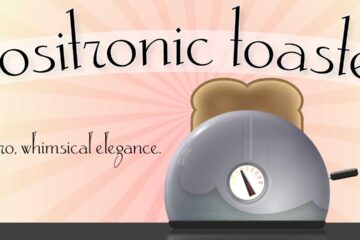At a recent panel, the moderator asked me, “Has Cancel Culture gotten out of hand?” or some such question like that. I don’t remember clearly because my mind was already whirling with dismay at what was really being asked and how to answer it because every time I’ve seen this topic “discussed” it has been a chance for someone in the discussion to jump all the way to “I have a right to be offensive without consequence”.
I do think that fiction needs to draw on strong emotion, we need to touch, prod, and push at taboo subjects. But that isn’t what the straw man in the above paragraph wants. They just want to say slurs.
So, right off the bat, I’m stuck trying to figure out how to inject nuance into this conversation, when nuance sells about as well as a crochet spacesuit compared to the simple purity of “freedom of speech!”
And if the conversation manages not to turn into “bring back Howard Stern” (like his ilk ever left) it will be instead a group of people tisking and shaking their heads, just saying that it’s bad, this cancelling thing is bad, but there’s nothing WE can do about it. If only someone would find and chastise these cancellers?
It doesn’t advance the discourse in any way. It doesn’t explain how to stop this problem, or how to protect ourselves from it. The conversation is a dead end, just there to give vent to emotions.
So, I am here to fix that. This blog post will tell you What We Can Do About It and also How To Protect Yourself.
Really. There is something we all can do.
It can seem like there’s nothing you can do to stop cancelling unless you are the one doing it.
Good news. You are.
Hear me out. In most of the discourse on cancelling, it’s like “the cancellers” are this group of villains, no one knows who they are, but they are out there, presumably in black hats twirling moustaches.
And … that’s not it, at all.
It’s pretty clear that “the cancellers” think they are in fact doing good, standing up for … something. Defending the weak? The vast majority are simply piling on, adding weight. They read that Celebrity X did something awful and feel the need to say “I agree that was awful!”
It’s unnecessary and performative, but it’s not necessarily from a place of malice.
The cancelers are ordinary people with emotions and opinions. Are you an ordinary person with emotions and opinions? Okay, put your big ordinary-person pants on and let’s get through this together.
What we can do to address “cancelling”:
- Don’t, personally, be a jerk.
… I thought there’d be a longer list, but it kinda stops there.
First, don’t be a jerk by piling on.
Is it necessary to weigh in on every faux pas? No. You don’t have to prove that you knew what they said was wrong. Your friends aren’t anxiously waiting to see if you agree with them or are secretly horrible. This isn’t about you.
Ask yourself, “Is what I am about to say necessary?” If it’s just re-iterating what someone else said, that’s a NO. Then ask yourself, “Is what I am about to say kind?” Imagine Mr. Rogers is sitting next to you and will see what you tweet. Changes your mind about calling some random YA writer a bad name, huh?
I’m not saying “you must put up with people being mean,” either. But recognize that the most human reaction to being called out is to DOUBLE DOWN. The great Ursula Le Guin wrote in The Left Hand of Darkness, “To oppose something is to maintain it.” We have a real human instinct to strengthen our position when it is challenged, to become LESS open to criticism and change. So, unless you want to make the person more intolerant, it behooves you to avoid the frontal assault. If they’re someone you are close to, talk to them, privately and non-confrontationally. If they’re not, a simple block or unfriend speaks more poignantly than a thousand replies.
Second, don’t be a jerk by generating content that hurts people.
Yes, that’s much harder than the previous jerk-avoidance. If there’s one thing I know from my EXTENSIVE experience putting my foot in my mouth, it’s that big hurts can come without intention. Have you ever said, “I didn’t mean it that way.” “What I meant was …” Or something like that?
Always begin commentary from a place of empathy; be open-minded. As above, ask yourself first if what you say is necessary and secondly if it is kind… but even if those become habits, well, habits aren’t like walking a tightrope where one misstep and it’s game over. Habits are like walking a path. You’ll get distracted and step off, and that’s okay, as long as you step back on.
No one can dedicate themselves to a lifetime of never fucking up. I can’t even make it a week, myself.
BUT
Try. And when you are called out, apologize. Listen, and apologize. The hurt didn’t occur in your heart, so your experience of the moment isn’t going to explain the hurt.
That’s it. Weirdly simple but not easy. The natural reaction is to double down. “Here’s why I was right to say what I said!” or “Here’s why you’re wrong to yell at me!”
It is very hard to let yourself lose arguments, and apologizing can feel like losing. Sometimes, people don’t take the apology and you have to repeat it again and again until it feels like a punishment, but no matter how tedious apologizing is, from my own long and grueling experience, it’s the shortest way out of the mess.
Let yourself be wrong. We are all wrong, time and again. We are flawed and complex and more than our latest hashtag. Have I said some downright offensive things? Absolutely. Am I afraid that if I ever make it to Real Fame people will be combing the internet to find my brainless teenage hot takes? Oh Gort YES.
I’m sorry. I wasn’t thinking. I hope I’ve grown since then.
Be Humble
I have to ask myself, sometimes, “Am I doing/saying this because I want others to know it about me?” Almost every time I give in to this urge to be performative, to promote an elevated image of myself, it ends up landing both feet firmly in my mouth.
It isn’t about you.
Really, that’s it. If you want to not be a jerk, make sure that it isn’t about you.
If it isn’t about you, there’s no reason to pile onto a person who has already been publicly chastized.
If it isn’t about you, there’s no reason not to apologize when called out.
For a long time, the sub-heading on my blog was “Get Me Away from Myself,” because a lot of misery, of shame and self-doubt, comes from focusing on the self. I honestly feel we are happier without mirrors, looking outward. Humans are happiest doing, making.
So, if you feel a need to protect marginalized people, instead of just posting about it, do something active, donate or volunteer for a nonprofit that helps them. Buy their art. Get away from yourself.
Ok. I am 100% certain this will blow back on me in the most spectacular way when I, inevitably, am canceled. (I just got a wikipedia page and the most vulnerable victims of ‘canceling’ aren’t big celebs – you’ll note they don’t go away – but the tiny almost-celebs, authors we hadn’t heard of before, local journalists, indie bands. The level of celebrity I fervently hope to achieve some day, and, as mentioned above – every time I open my mouth, I insert a foot. I will inevitably not follow my own advice. I am sorry, future, I am trying to be better.)
Also, sorry a lot of this was repeated from other blog posts I’ve written, but at least now I can link to this next time I’m asked about “Cancelling” on a panel instead of having a mild panic attack about how to say what I mean to say.


